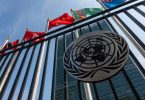Comment By: Jalil Afridi
The incoming Trump administration is likely to significantly reshape U.S. foreign policy in Afghanistan, potentially supporting Ahmed Massoud, the son of late Northern Alliance leader Ahmed Shah Massoud. With the Taliban facing international criticism and the geopolitical landscape shifting, this development could have profound implications for Afghanistan and its neighbors.
Domestically, the Taliban have managed to stabilize governance and streamline economic activities, showing competence in managing Afghanistan’s internal affairs. However, their strict bans on girls’ education and exclusionary governance, which marginalize various ethnic groups and sects, continue to isolate them internationally. These policies have drawn global condemnation and left them struggling for diplomatic recognition, creating an opportunity for opposition forces to gain traction.
Ahmed Massoud and the Northern Alliance, entrenched in the Panjshir Valley, remain a symbol of opposition against the Taliban. Figures such as former Afghan foreign minister Hanif Atmar and segments of the international community have lent their support. Massoud’s ability to galvanize resistance is bolstered by political and media backing, which could escalate as international focus intensifies. The likelihood of renewed conflict between the Taliban and the Northern Alliance appears imminent, raising the stakes for Afghanistan’s stability.
The Trump administration’s foreign policy has consistently prioritized countering China, and this stance will shape its engagement in the region. The administration is expected to strengthen the Indo-Pacific strategy, with recent trips by senior officials like Secretary Lloyd Austin emphasizing its importance. Both the State Department and Pentagon have reiterated their focus on supporting India in its regional security concerns, particularly against Chinese influence.
This policy will impact countries like Afghanistan and Pakistan, which have cultivated close ties with China. Trump’s approach may strain these relationships and push Afghanistan’s opposition forces, including Massoud’s Northern Alliance, into strategic alignment with U.S. interests.
China’s expanding role in Afghanistan, alongside its partnership with Pakistan, will face challenges under Trump’s leadership. Afghanistan’s reliance on Chinese investments for infrastructure and economic projects may come under scrutiny. Meanwhile, Uzbekistan and other Central Asian nations, increasingly active in the region, could also recalibrate their positions as U.S. policy shifts.
India’s position in the region remains critical. The U.S. has assured support to India, with Pentagon officials recently addressing questions on the China threat. This alignment underscores Washington’s commitment to its Indo-Pacific allies and could further isolate the Taliban, who already face limited international support.
The Taliban must navigate this evolving landscape carefully. While they have transitioned from operating in remote hideouts to governing from official offices, maintaining control amid growing resistance and international isolation will be a formidable challenge. Escalating conflict with Massoud’s forces could weaken their grip, particularly as international support for the opposition grows.
To sustain their governance, the Taliban may need to reconsider their restrictive policies and embrace inclusivity, potentially easing global criticism. However, such changes risk internal divisions within their ranks, creating a delicate balancing act.
The Trump administration’s expected support for Ahmed Massoud and its focus on countering China will reshape Afghanistan’s regional dynamics. The Taliban face mounting challenges, and their ability to adapt will determine their future in a rapidly shifting geopolitical environment.







